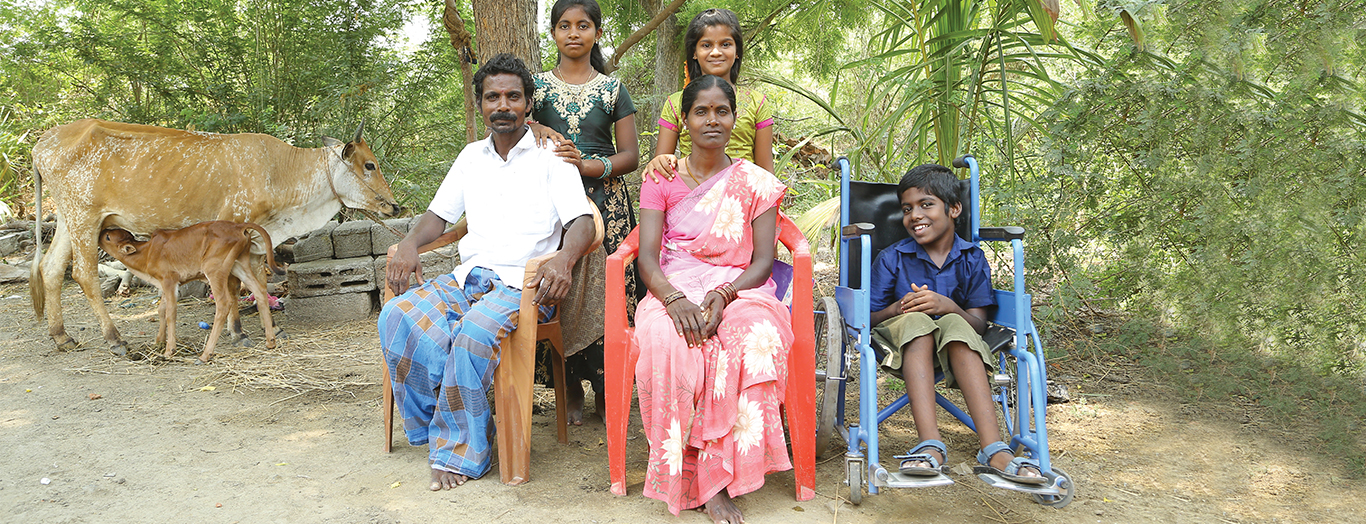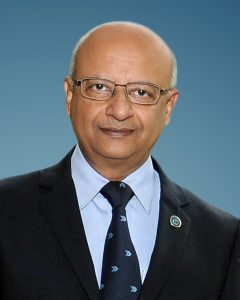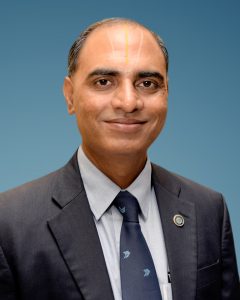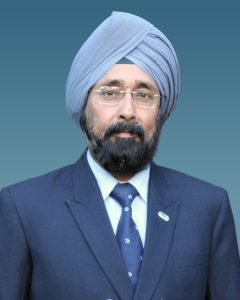SNS Foundation established in 1976 is named after Sant Nischal Singhji (1882-1978), spiritual leader and a social reformer committed to the cause of education. The Foundation is the corporate social responsibility arm of the ANAND Group.
The Foundation addresses four development verticals – Education, Health and Hygiene, Skill Development and Community Conservation. The mission of the Foundation is to create social impact among rural communities by transforming behaviors of the community members with an aim of achieving economic self-reliance and coexisting harmoniously with the environment.
Partner organisations
SNS Foundation is engaged with a number of partner organisations – corporate, civil society, Government and aid agencies. A number of ANAND Group companies contribute to the community engagement through SNSF.
Key SNSF partners are:
ANAND Group companies : ANAND Automotive, Anchemco ANAND, Ansysco ANAND, ANAND I-Power, ANAND CY Myutec Automotive, CY Myutec ANAND, Faurecia Clean Mobility, Gabriel India, Haldex India, Henkel ANAND India, MAHLE ANAND Filter Systems, MAHLE ANAND Thermal Systems, Mando Automotive India, Spicer India, SUJÁN
Other corporates : Agilent Technologies, Bechtel Foundation, Bain & Co., Federal – Mogul Motorparts, Global Alliance, GE Capital, Honda Motorcycle & Scooter India Limited, Kohler India Philips India Limited, Punj Lloyd, Schneider Electric India Foundation
Government and other organisations : American India Foundation, Asian Development Bank, Council for People’s Action and Rural Technology (CAPART), Haryana Prathmik Pariyojana Parishad, Ministry of Health & Family Welfare (GoI), National Bank for Agriculture and Rural Development (NABARD), United Nations Development Programme (UNDP), United Nations Population Fund (UNFPA)
Associates : ANAND School (Parwanoo), British High Commission in India, Mercer-Mettl, National Institute of Open Schooling (NIOS), Pratham Books, Population Foundation of India
SNS Foundation is present across 360 project sites within 8 Indian states (Himachal Pradesh, Uttarakhand, Haryana, Rajasthan, Madhya Pradesh, Maharashtra, Karnataka, Tamil Nadu), widening its presence in and around ANAND manufacturing hubs.
Vision & Mission
Building capabilities within communities through social transformation.
The Foundation’s mission is to mobilise participation of benefactors from all sections of civil society to work towards sustainable development of marginalised sections – particularly children, women, youth and persons with physical disability by following a rights based and empowerment approach, in the fields of Education, Health, Skill Development, Rural Development and Community Conservation.
Financial Reports
TIMELINES
Charitable Organization Mode
For the first decade of its existence, the ANAND Welfare Centres undertook one-time charitable activities, such as planting trees, distributing blankets, donating blood and constructing drinking water kiosks, among others. A systematised approach of addressing developmental issues began to define the Foundation’s functioning from the early-1990s. Two key projects in the areas of healthcare and skill development for youth were launched in 1992, and we have not looked back ever since.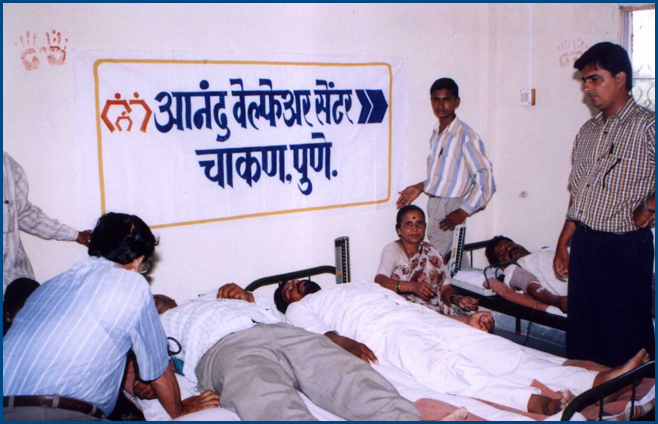
1976: Nischal Foundation was founded by the late Mr. Jagdish Anand.
1978 - 1990: During these 12 years, ANAND welfare centres came up at Parwanoo, Gurugram, Dewas, Mulund, Pune and Nashik. Several one-time charitable activities such as, planting trees, distributing blankets, donating blood and constructing drinking water kiosks, among others were undertaken
Professional Development Organization Mode
During the second phase, a professional profile was developed comprising the engagement of qualified social workers, doctors, medical professionals and environmentalists. Following the ANAND partnership-centric philosophy, SNSF entered into alliances with corporates, associates, government departments and development organisations.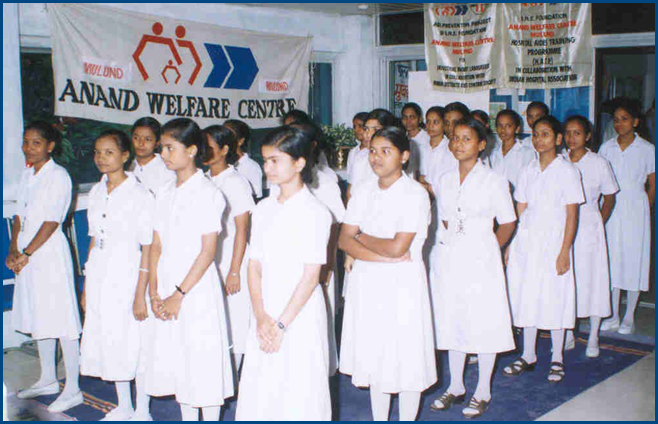
1992: Two key projects (Project Nayandeep and Hospital Assistant’s Training Programme) were launched in 1992.
Project Nayandeep: This tripartite partnership between Venu Eye Hospital, Helpage India and SNSF provided cataract treatment to the underprivileged rural residents of Gurugram.
Hospital Assistant’s Training Programme: This programme was implemented across Mumbai, Chennai, Jodalli, Nashik, Pune, Gurugram, Parwanoo and Dewas. More than 3000 high school women graduates were trained as paramedics and subsequently placed in private hospitals, nursing homes, chemists, gymnasiums and weight reduction clinics. The HATP programme is functional only at SNSF’s Dewas location.
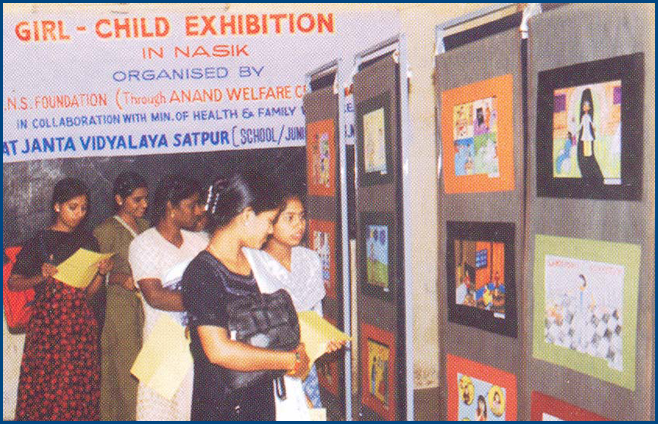
1997: The first All India Girl Child Painting Exhibition was organised and subsequently, the event is being conducted across all ANAND locations.
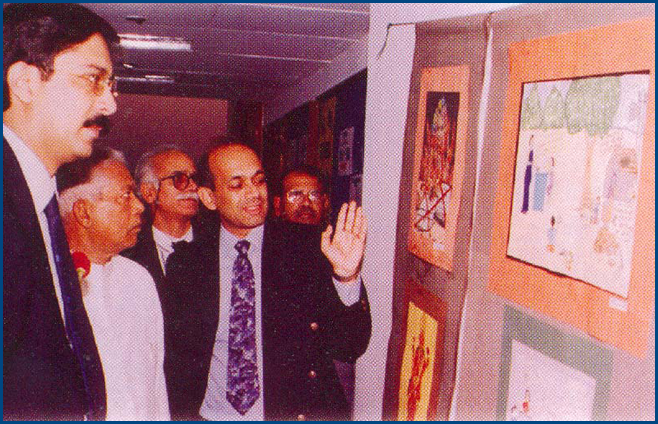
1998 - 1999: Dr. Gabriele Henkel (Henkel family) and His Excellency Ambassador of Germany Dr Heinrich-Dietrich Dieckmann visited the Girl Child Painting Exhibition.
- Nischal Foundation was renamed Sant Nischal Singhji Foundation (SNSF)
- SNSF, in partnership with Ministry of Health and Family Welfare under the MOTHER NGO Project, monitored service delivery across more than eight community-based organisations in the fields of reproductive and child health in the districts of Shimla, Solan, Sirmour and Kinnaur across the decade.
- SNSF was contracted by International Labour Organisation to estimate the number of out-of-school children or child labourers (estimated at 30,000) in Gurugram.
- Led by Mr. Jagdish Anand, Secretary General of SNSF, the Girl Child Art Exhibition travelled to Heidelberg (Germany) following an invitation by Dr. Gabriele Henkel.
- Extensive efforts helped bring out-of-school Gurugram children into the fold of education under the Parivartan project, mainly sponsored by Max India Limited.
- Apart from regular classes for out-of-school children in a factory shed made available by Purolator Filters, vocational training programmes (cutting, tailoring, beauty care and computers) were launched.
2000:
- Town Enrichment Action Movement (TEAM), a landmark education project, was launched in partnership with the United Nations Development Fund and the British High Commission in Gurugram.
2001:
- A mobile health van was received from Henkel (Germany), which helped SNSF clinch the Reproductive and Child Health on Wheels’ project from the Ministry of Health and Family Welfare.
Corporate Social Responsibility activities
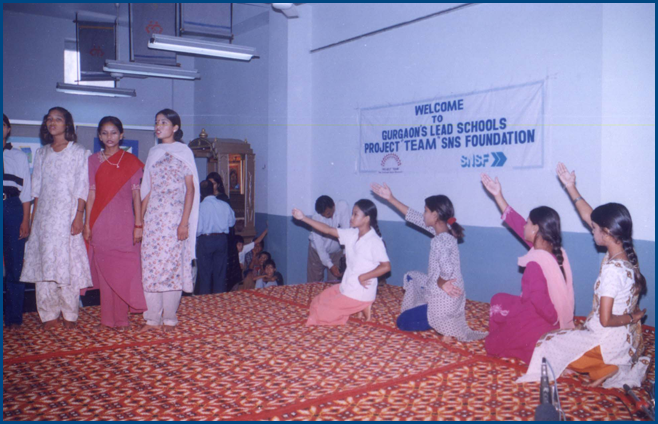
2001:
- SNSF and KPMG launched the Movers and Shakers project (in continuation of Project TEAM’s aim of sensitising society to assume the responsibility of educating the underprivileged children in Gurugram). The number of schools running the bridge school programmes increased from 10 to 25. Project TEAM also hosted Mrs. Nane Annan, wife of the then-UN Secretary General, Mr. Kofi Annan.
- The second All India Girl Child Art Exhibition was supported by the Ministry of Health and Family Welfare. The travelling exhibition showcased the artworks of about 1500 school students in Parwanoo, Dewas, Mumbai, Nashik, Pune, Dharwad and Chennai.
- Some 300 adolescents were exposed to life skills through the adolescent girls’ project delivered in partnership with the Ministry of Health and Family Welfare. The project was conducted in Kaba Kalan and Pratha panchayat areas in Solan district (Himachal Pradesh) and in five Gurugram villages (Daulatabad, Dharampur, Bajghera, Mohammadpur and Babupur).
- Mobile health services in reproductive and child health were delivered in partnership with the Ministry of Health and Family Welfare. Some 150,000 residents of urban slums and villages of Gurugram benefitted annually.
- A holistic village development project was launched in partnership with Bechtel Foundation (2001-4). Some 389 households of Dharampur benefitted from various services rendered under this project (mobile health services, microfinance through self-help groups, vocational training and tuition for students). The local government upgraded the Dharampur primary school to the level of a middle school; it made the Primary Health Centre functional. Similar programmes were launched in Babupur, Daulatabad and Mohammadpur following the request of residents.
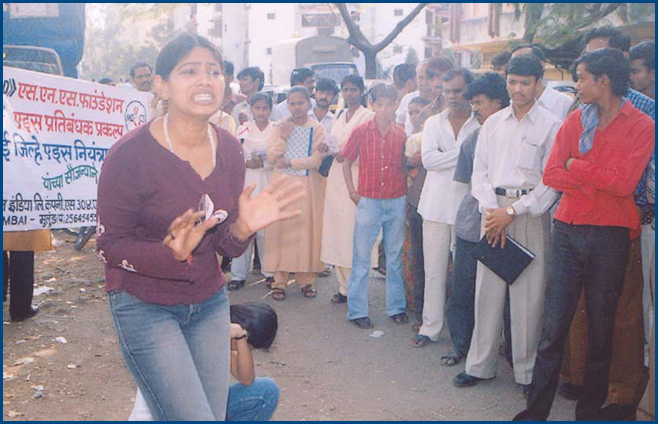
2002 - 2003:
- In partnership with Haryana AIDS Control Society (HACS), a Targeted Intervention project spread awareness on HIV/AIDS and general health to 2500 migrant labour families in Gurugram (2001-02).
- The TEAM project enrolled 2500 out-of-school children into formal and non-formal education, exceeding its target three-fold. Some 25 reputed private schools (DAV, DPS, Ryan International, Blue Bells and CCA) opted for this bridge programme.
- Commencement of a long-lasting partnership with Agilent Technologies
- Starting with a project for the construction of three classrooms and washrooms in a Government Girls Senior Secondary School, Jacobpura (Gurugram), a number of projects were delivered across ten years. In an act of corporate volunteering, Agilent volunteers painted school classrooms and washrooms.
- As part of a partnership with Global Alliance for Workers and Communities, some 3400 garment factory employees of Gap Inc. were educated on issues related to health, ergonomics, safety, HIV/AIDS and labour compliance.
- Milke Chalo project was launched as part of a two-year partnership with United Nations Fund for Population Activities (UNFPA), Integrated Women Empowerment Development Programme (IWEDP) and Centre for Development of Population Activities (CEDPA). A life skills education module called Choose a Future was launched in 28 villages of Ateli block (Narnaul district, Haryana) addressing approximately 10,000 people. Some 200 Self Help Groups were formed in Dharampur block (Himachal Pradesh) in partnership with National Bank for Agriculture and Rural Development (NABARD).
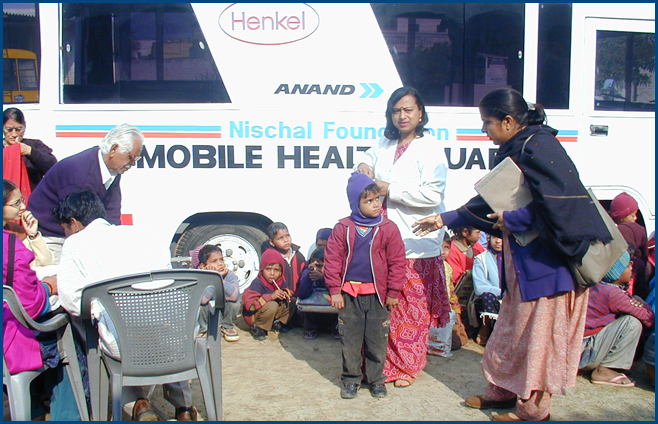
2002 - 2004:
- A targeted intervention project was implemented for the industrial workforce and labour of the unorganised sector in partnership with Mumbai AIDS Control Society (MDACS) A partnership was initiated with GE Capital’s Employee Volunteer Club GE-Elfun and GE businesses, viz., GE-Capital (later Genpact), GE-Money, GE-Insurance Solutions, GE-Plastics and GE Volunteer Foundation. What started with a health check of 1200 students of SNSF’s Parivartan education programme went on to include corporate volunteering activities involving 650 GE volunteers that comprised providing a school a facelift, organising student excursion trips in SNSF learning centres and grant-backed projects that focused on education and health. SNSF’s last project with GE was in 2008-09.
- In partnership with the Asian Development Bank (2003-04), SNSF implemented income generation and environment protection projects comprising organic farming among women in Babupur, Dharampur, Mohammadpur, Bajghera and Daulatabad villages (Gurugram).
- As part of a partnership with United Nations Development Fund, 2079 industrial workers attended 126 camps in Parwanoo that enhanced awareness of HIV/AIDS.
- In partnership with Mamta Health Institute for Mother and Child, a ‘Prevention of Parent to Child Transmission of HIV/AIDS’ project was implemented in the Dharampur and Nalagarh blocks (Solan district), Himachal Pradesh, covering 44,000 people (2003-09).
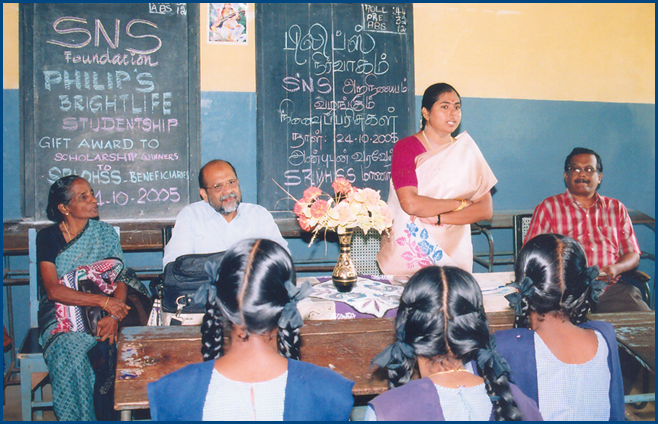
2005:
- A partnership with Philips India Lighting helped launch Philips Brightlife Studentship project, helping middle-school students complete their schooling (Class X or XII).
- An enduring partnership with Himachal Pradesh State AIDS Control Society (HPSACS) helped launch a Targeted Intervention Project for core and non-core (high-risk) groups in Parwanoo, Baddi, Barotiwala and Nalagarh (Himachal Pradesh).
- A partnership with the District Rural Development Agency, Nashik, helped initiate the formation and bank linkage of 340 Self Help Groups in the tribal blocks of Peth and Trimbakeshwar. The partnership brought more than 3500 women into the microfinance fold across 340 groups, about 50% commencing small businesses.
- A three-year partnership was initiated with Heifer International to rehabilitate the tsunami-affected in the Thiyagavalli panchayat (Cuddalore district, Tamil Nadu). A joint initiative for integrated vocational and community advancement benefited 500 affected families (largely women) across 12 villages (Thiyagavalli) through shared livestock.
- The International Art Competition on Road Safety and Health, involving students in SAARC countries, received over 7000 entries.
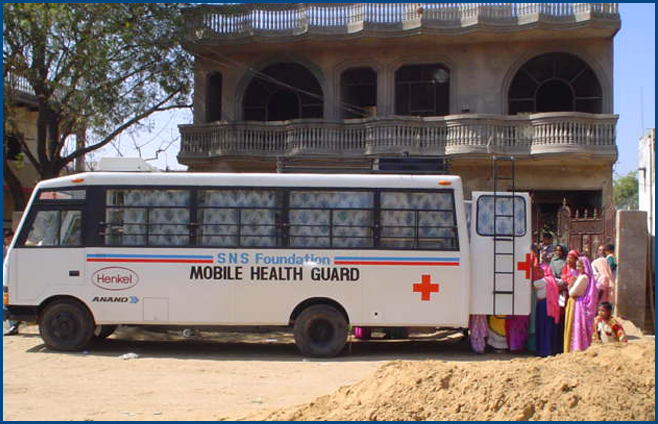
2006:
- A third mobile health van, fitted with a dental chair, was received from Henkel (Germany).
- After supporting a school (Government Girls’ Senior Secondary School, Jacobpura, Gurugram) for three years, the SNSF-Agilent partnership launched its first major project called ‘Quest’. SNSF partnered Fluor Corporation in building drinking water and sanitary facilities in the Government High School of Bandhwari village (Gurugram). Following visible improvement in the lives of their children, the rural women formed five self-help groups to engage in entrepreneurial activities.
- SNSF entered into a three-year partnership (2006-09) with Society for Service to Voluntary Associations (SOSVA), providing reproductive and child health services to 15,000 migrant workers in the urban village of Dundahera (Gurugram).
- SNSF partnered Reliance Haryana Special Economic Zone to deliver preventive and curative healthcare across 18 villages of Jhajjhar district and 12 villages of Gurugram district, touching approximately 150,000 people. Mobile health services were delivered through two mobile health vans and 18 static health clinics.
- The Neev project, addressing civil repairs and the whitewashing of a government primary school (upgraded to middle-school) in Gurugram, attracted corporate volunteering by 60 employees of Hilti India Private Limited under an ACYM-CSR initiative. SNSF now impacts about 650 school children annually.
- SNSF partnered Godavari Foundation (Mother NGO under the Ministry of Health and Family Welfare’s Reproductive and Child Health Project) to deliver reproductive and child health services in Trimbakeshwar block, addressing a tribal population of 7700 (2006-09).
- SNSF commenced a two-year (2006-08) partnership with Haryana Prathmik Shiksha Pariyojana Parishad, actring as the implementing arm of Sarva Shiksha Abhiyan (SSA) in Gurugram. SNSF was contracted to initiate and run 25 Alternative Innovative Education (AIE) centres and 25 AIE vocational centres reaching out to 1250 children (age group 6-14 years) deprived of schooling.
2007:
- Under Sarva Shiksha Abhiyan, 783 children of 1250 (63%) were admitted to formal schools. Mr. Gordon Brown, Chancellor, Government of Britain, visited the SNSF-SSA centres.
- SNSF partnered Punj Lloyd (2007-08) to implement a Project on Life Enrichment (Phase I). Comprehensive workplace intervention was conducted around health, ergonomics, safety, HIV/AIDS awareness and labour compliance for 2500 migrant workers. Some 200 staff members of Punj Lloyd were engaged at the Medicity (Medanta) construction site.
- SNSF launched Project Ladli in partnership with Bain and Company. As a part of corporate volunteering, 70 Bain employees decorated the walls of the Government Girls’ Primary School in Gurugram.
- SNSF entered into a partnership with NABARD, a project around Holistic Village Development (2007-10), executed in Banasar panchayat and covering Seiri, Mahlo and Takrota. The project benefited 84 families and 405 persons.
2008:
- Under Sarva Shiksha Abhiyan, 953 of 1250 children (76%) were admitted to formal schools.
- Phillips Brightlife Project came to a close after awarding studentship to 733 children (over 50% girls) at the ANAND locations of Gurugram, Chakan, Kolkata and Chennai for five years.
- SNSF was chosen by the Gurugram administration as the implementing arm of the National Child Labour Project (NCLP) for the city, contracted to initiate and run 26 centres and reach 50 out-of-school children (age-group 8-14 years). Some 457 of 1300 enrolled child labourers were admitted to formal schools under NCLP education centres.
- Following the expansion of partnership with Punj Lloyd (attracting International Finance Corporation), the Phase II of the Life Enrichment Project was delivered across two years (2008-10) with a focus on comprehensive workplace interventions around health, ergonomics, safety, HIV/AIDS, workplace conditions, living conditions and labour compliance for 9000 migrant workers. Some 600 staff members of Punj Lloyd volunteered at the construction sites of IOC refineries (Vadodara, Panipat and Haldia).
2009: Quest developed 28 science laboratories, 15 mathematics labs and 8 computer laboratories in 15 schools of Gurugram and Bengaluru across three years, with 28 teachers trained in three disciplines.
2010: The project Quest led to the project Eureka from 2010 to 2014, developing science libraries in Quest schools. The project Sanskaar imparted life skills education to adolescents in the Quest and Eureka schools of Gurugram.
Delivering on ANAND’s Societal Development Commitment
2011:- SNSF entered into partnership with Himachal Pradesh State Ministry of Health and Family Welfare around the National Rural Health Mission to render services linking the urban migrant population in Baddi, Barotiwala, Nalagarh and Parwanoo to government health services, particularly reproductive and child healthcare.
- A partnership between SNSF and American India Foundation was initiated to support skill development, which now works with the handicapped youth and rural women across six training centres (Gurugram and Rewari) and helps find them employment.
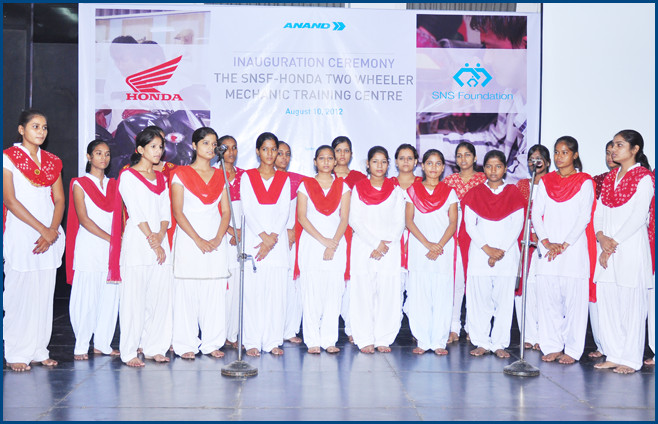 2012:
2012:
- SNSF entered into a partnership with Honda Motorcycle and Scooter India Private Limited to launch a two-wheeler technician training centre at SNSF Gurgaon.
- SNSF entered into a partnership with Schneider Electric Foundation to launch an electrician training centre at SNSF Gurgaon.
2014:
- SNSF became the preferred implementation partner for most ANAND Group of companies, graduating their CSR into action in line with Companies Act, 2013.
- SNSF partnered government schools to improve the quality of instruction, infrastructure, skill development and rural development. Some 19 government schools were covered in this education programme.
- New skill development training centres were commissioned at Jodalli and Talegaon (Chakan) to train factory operators.
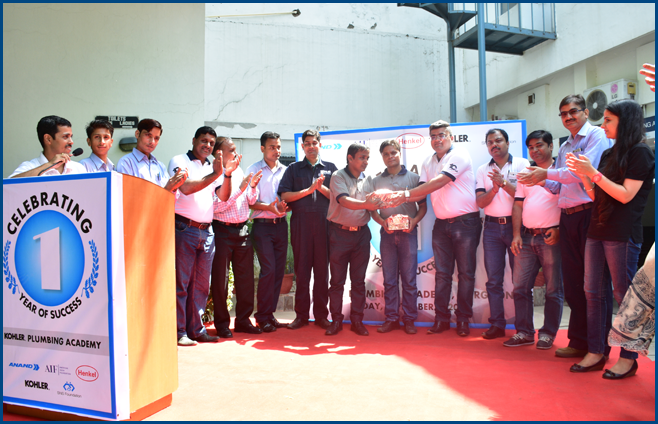
2015:
- In partnership with Kohler India - Plumber Training Centre initiated at SNSF Gurgaon supported by Henkel CSR.
- The number of schools under SNSF's Education programme portfolio increases from 19 in 2014 to 50 in 2015.
2016:
- The number of schools under the portfolio of SNSF’s education programme increased from 50 in 2015 to 64 in 2016.
- SNSF launched Medhavi, a scholarship programme for matriculate girls to pursue a Diploma in mechanical engineering or automobile engineering, in partnership with four polytechnics at Jodalli, Nasik and Chakan.
2017:
- The number of schools under the portfolio of SNSF’s education programme increased from 64 in 2016 to 81 in 2017.
- Project Medhavi ‘scored’ a century with 101 awardees, expanding from three locations to eight, following a partnership with nine polytechnics.
2018:
- Introduced services of a mobile medical van in villages around Jawai Bandh
- Introduced certification of National Skill Development Corporation for skill development courses
- Initiated model village development initiative at Village Rohile, Trimbakeshwar Block, Nashik
2019:
- Signed MoU with HMSI for strengthening quality of training delivered under 2 Wheeler Technician Training course
